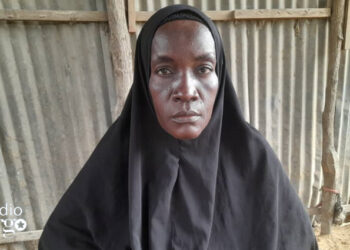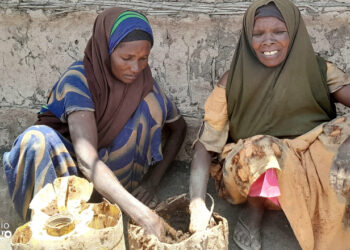(ERGO) – Somali parents and teachers in the refugee camps in Dadaab, northeastern Kenya, are complaining that Kenya’s newly launched education system is neither affordable nor practical for refugee students living in the camps.
The first batch of refugee students joining secondary school this year under Kenya’s new national Competency Based Curriculum have to buy new course books and access equipment for additional practical subjects.
Two of Mohamed Abdikadir Ahmed’s three sisters are among the first batch of students to study under the new curriculum. He cannot see how he will be able to support them with everything required for their studies.
“Our life is difficult. I am a young person and I don’t have a job, I don’t have my parents to support me. I want to help my sisters to study. This new curriculum needs extra investment which I can’t afford,” said Mohamed, who depends on aid distributed by the refugee agency UNHCR in the camps.
Secondary school students now have seven subjects, each requiring books, equipment, and facilities. One of the subjects is Agriculture, with a focus on practical learning.
“We are not located within farmland, and we can’t take the children to a different area and show them!” complained Mohamed.
“Then there is computer science, which needs investment. If there are no computers at home or at school, how will they learn?”
Mohamed, 30, lost his parents in 2010 and since then has been taking care of his siblings. He joined Dadaab camp in 1992 after fleeing the onset of Somalia’s civil war.
He is urging Kenya’s ministry of education and aid organisations with a focus on education to help his siblings acquire the necessary resources and equipment.
Meanwhile, Fartun Mohamed Ali, a mother of eight, is also concerned about how her son who joined secondary school this year will be able to complete the practical courses.
Fartun herself went to primary and secondary schools in Hagadera refugee camp. She says schools in the camp are not prepared for the new curriculum, especially for the practical subjects needing equipment and exposure.
“The children study 14 subjects, including seven practical ones. For example, for the agriculture classes the students need to get to a farm and have access to seeds and water. There is a water shortage in the camp, and we depend on small food handouts!” she challenged.
Fartun noted that teachers in the camp lack training for the new curriculum, which will adversely affect the students’ learning and performance.
Many parents are planning to pull out their children from school and keep them in Koranic schools, she said:
“We haven’t received any new teachers to teach this new education system. As a parent, if my children need to have all those things and I can’t afford them, I will have to take them to the Koranic school instead and teach them about religion.”
The principal of Al-Amin school in Hagadera camp, Ahmed Abdi Mohamed, told Radio Ergo that the previous curriculum was better suited for students in the refugee camps.
“As you know, there are far more subjects in this new curriculum, and the teachers can’t offer all those lessons or provide the equipment. Therefore, it is very hard, we need more teachers, and the funds required for this system are also far higher,” he said.
The principal said some parents are trying to push their children ahead in primary school to sit for the final national examinations early before those examinations are also changed. This would mean they would not send their children to secondary school as the new curriculum is too costly for them.












